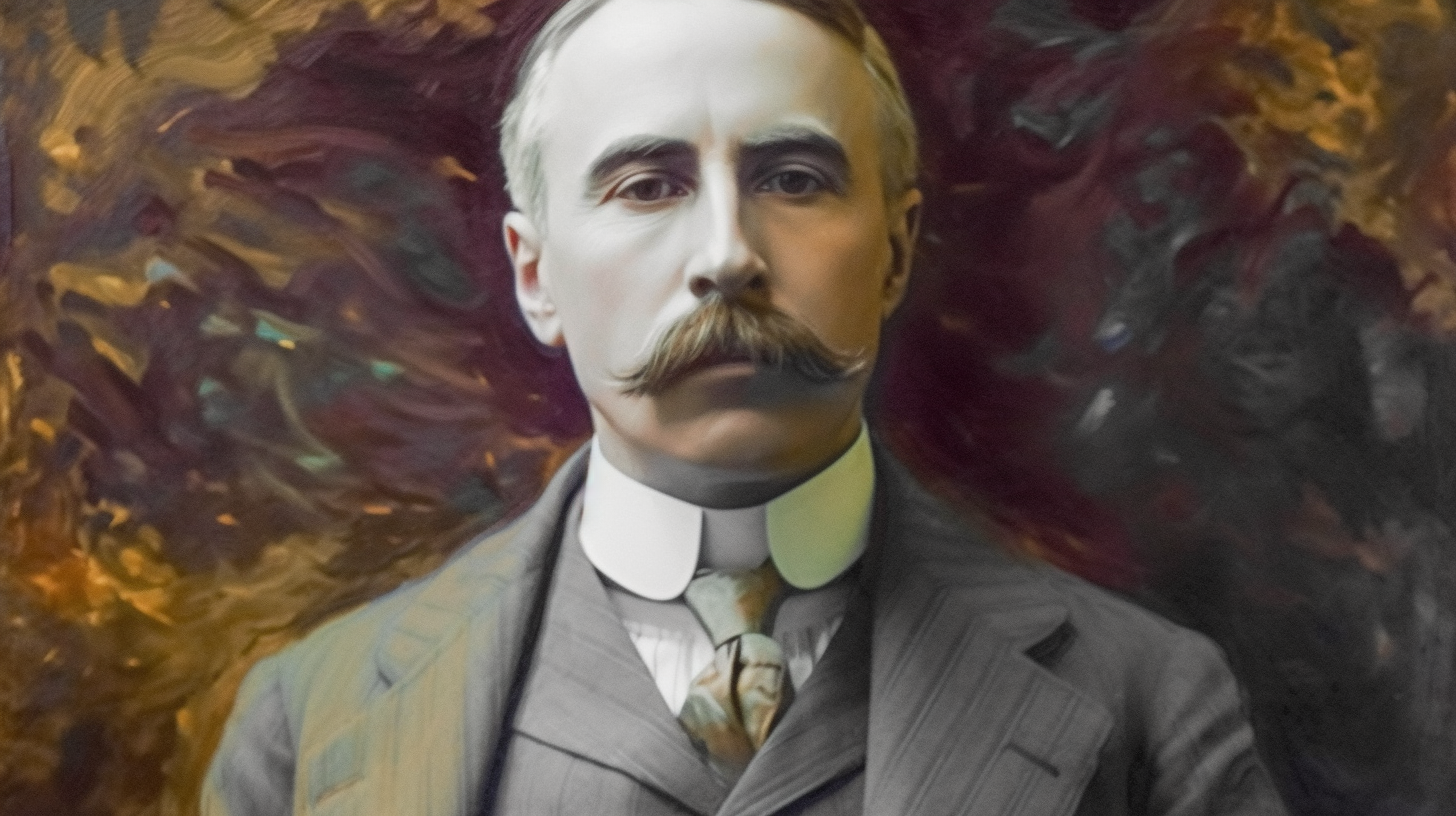Edward Elgar (1857-1934) was an English composer widely regarded as one of the most significant figures in British classical music. He was born in Worcester, England, and showed early musical talent, teaching himself to play various instruments. Despite coming from a relatively humble background, Elgar’s passion and talent led him to achieve great success.
Warning: require_once(/var/www/html/administration/config.php): failed to open stream: No such file or directory in /var/www/html/api/inc/init.production.php on line 10
Fatal error: require_once(): Failed opening required '/var/www/html/administration/config.php' (include_path='.:/usr/share/php') in /var/www/html/api/inc/init.production.php on line 10
Doppelgängers born at the same time

born on June 02, 1857
Edward Elgar
English composer, many of whose works have entered the British and international classical concert repertoire
born on May 31, 1857 (d. 1939)
Pope Pius XI
Head of the Catholic Church from 6 February 1922 to his death in February 1939EVENT CARD

Pre-human remains are found in the Neanderthal Valley in Prussia
It happened on 17 August, 1856
Featuring: Hermann Schaaffhausen.
Elgar’s breakthrough came in 1899 with the premiere of his “Enigma Variations,” a set of orchestral variations that showcased his distinctive style and musical genius. This composition firmly established his reputation as a composer of international stature. Elgar went on to compose several other renowned works, including “The Dream of Gerontius,” “Pomp and Circumstance Marches,” and his iconic “Violin Concerto.”
In recognition of his contributions to British music, King Edward VII celebrated Elgar in 1904 by conferring upon him the honor of a knighthood, making him Sir Edward Elgar. This accolade from the monarch was a testament to Elgar’s significant impact on the cultural landscape of Britain.
Throughout his life, Elgar faced both critical acclaim and personal challenges. His music often evoked a sense of national pride, capturing the spirit and identity of England. Elgar’s legacy continues to resonate, and his compositions are celebrated for their emotional depth, lyrical beauty, and profound musical craftsmanship.
